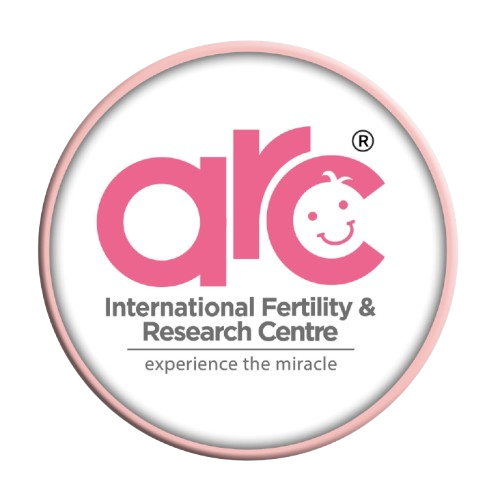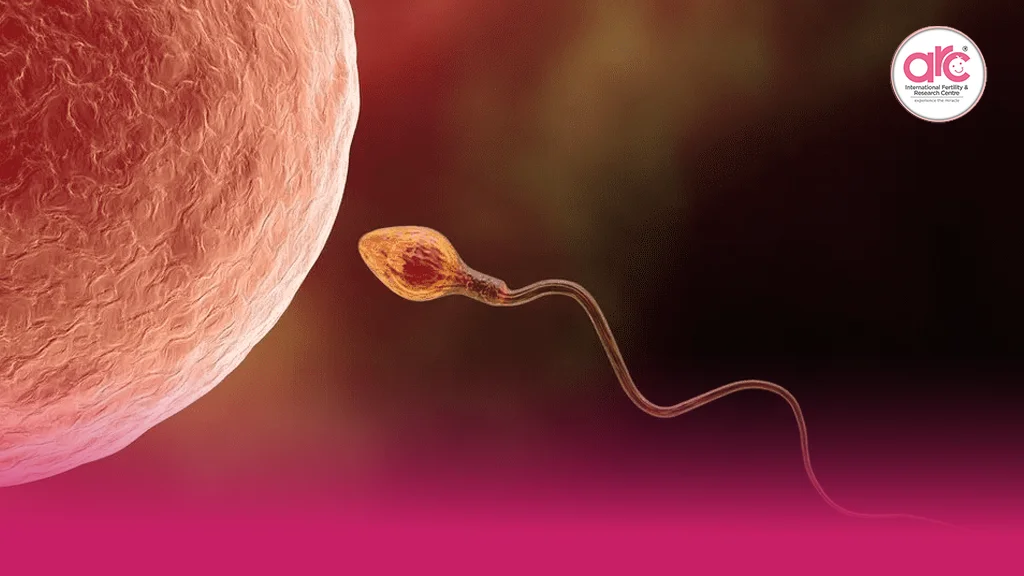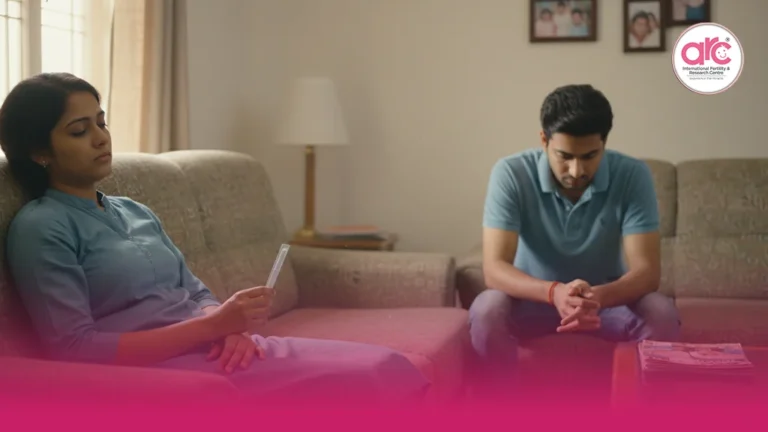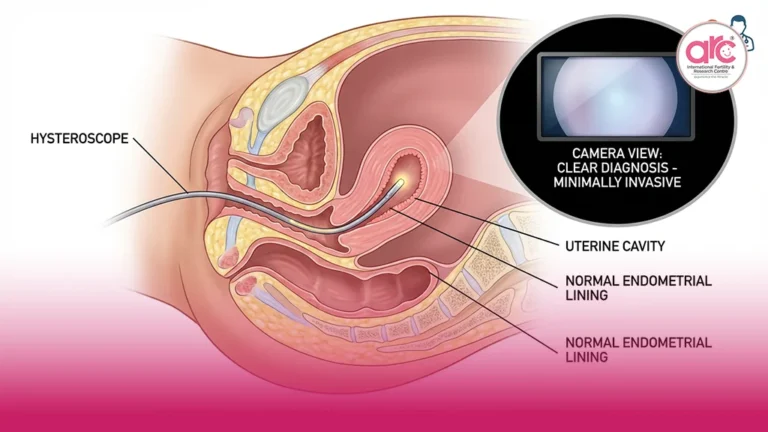Most men don’t think about sperm count until it becomes part of a harder story — one that begins with love, hope, and months of waiting for two lines that never appear.
At ARC Fertility Hospital in Chennai, we meet couples in that quiet space between trying and understanding. When tests finally bring a word like Oligospermia into the conversation, it can feel heavy. But here’s the truth: it’s not an ending. It’s just a signal. A starting point for finding what’s really going on inside your body, and what can be done next.
What Exactly Is Oligospermia?
It’s a medical word for something simple — low sperm count.
Normally, a man’s semen contains anywhere between 15 million and 200 million sperm in every milliliter. Anything below 15 million is considered oligospermia.
And yet, that number alone doesn’t define your fertility. Many men with low sperm count go on to father children naturally. Others may need a little medical help, like ICSI treatment or IVF — but the dream remains within reach.
When sperm count drops below 5 million per milliliter, doctors call it “severe oligospermia.” Even then, it doesn’t mean “impossible.” Just “needs attention.”
Why It Happens
Sometimes, there’s no single reason. Other times, the cause hides in one of many small details — an infection years ago, a lifestyle habit, even heat exposure.
Here are the most common reasons:
- Varicocele – swollen veins in the scrotum that overheat the testicles.
- Infections – like urinary tract infections (UTIs) or STIs such as gonorrhea or HIV.
- Hormone imbalances – especially when testosterone levels are disrupted.
- Genetic factors – like Klinefelter syndrome or cystic fibrosis.
- Lifestyle choices – heavy alcohol, stress, smoking, or being overweight.
- Environmental toxins – exposure to pesticides, heavy metals, or industrial heat.
Your testicles need a cooler temperature than the rest of your body to make sperm. Even sitting in a hot tub too long can throw them off balance.
When Should You Worry?
The truth is, oligospermia doesn’t usually show itself with physical symptoms. No pain. No warning signs. Most men find out only when conception doesn’t happen.
Sometimes, you might notice:
- Lower sex drive
- Difficulty maintaining an erection
- Swelling or a lump in your testicle
- Less facial or body hair
But most of the time, the silence of symptoms is what delays diagnosis. That’s why a fertility test is often the first real step.
How Doctors at ARC Diagnose It
At ARC Fertility Hospital in Chennai, we start with a simple semen analysis. You provide a sample, and our lab studies it — the count, movement, and shape of your sperm.
If the numbers are low, we dig deeper. Genetic tests, hormone checks, testicular scans — every test is about one thing: finding the why. Because once we know that, we can start fixing it.
The Treatment Path: From Understanding to Action
There’s no one-size solution for oligospermia. What works for one man may not work for another. But there’s always a plan — one built around you.
Lifestyle shifts
Cutting back on alcohol, quitting smoking, eating better, and staying active can sometimes make a measurable difference.
Medication or hormone therapy
If infections, inflammation, or hormone imbalance are the culprits, these can help restore balance.
Surgery
When a varicocele or blockage is to blame, a small corrective procedure can improve sperm flow and count.
Assisted Reproductive Techniques
When natural methods aren’t enough, treatments like ICSI and IVF bridge the gap.
Our team walks couples through the IVF treatment process step by step, explaining each stage with care — from egg retrieval and sperm selection to embryo transfer and the hope that follows.
Sometimes, even when sperm counts are very low, a single healthy sperm is enough. That’s where science meets miracle.
Can Vitamins Help?
Yes — but only as part of a holistic approach. Supplements like Coenzyme Q10, Vitamin C, and L-Carnitine can improve sperm health when used under a doctor’s guidance. Nutrition matters, but medical support matters more.
What to Ask Your Doctor
If you’ve been trying to conceive for over a year, it’s time to seek clarity.
Ask questions like:
- What’s causing my low sperm count?
- Can I improve it naturally?
- Do I need fertility treatment?
- What are my next steps toward fatherhood?
You deserve answers that are compassionate, not clinical.
Can You Still Become a Father?
Yes — a thousand times yes.
Oligospermia may slow things down, but it rarely stops the story. With today’s technology, treatments like IVF and ICSI give couples every chance to conceive using their own eggs and sperm.
Every week at ARC, we see stories that start in worry and end in newborn cries. Science plays its part, but so does persistence — and hope.
The ARC Way
At ARC Fertility Hospital in Chennai, we believe fertility care isn’t just about medicine, it’s about dignity.
When a man walks in worried about his sperm count, he’s not just bringing lab numbers. He’s bringing the weight of expectations, family conversations, and private fears. We never forget that.
We meet you where you are — with science, empathy, and options that fit your life. Whether that means lifestyle guidance, medical treatment, or walking you through the IVF treatment process step by step, our goal stays the same: help you become a parent in the way that’s right for you.
Final Thought
Low sperm count doesn’t define your masculinity. It doesn’t define your worth. It’s a medical condition — one that can be understood, treated, and overcome.
So if you’re struggling to conceive, take that first brave step. Get tested. Ask questions. Let a team that cares as deeply as you do guide you forward.
Because at ARC, every story — even the difficult ones — still has room for hope.




